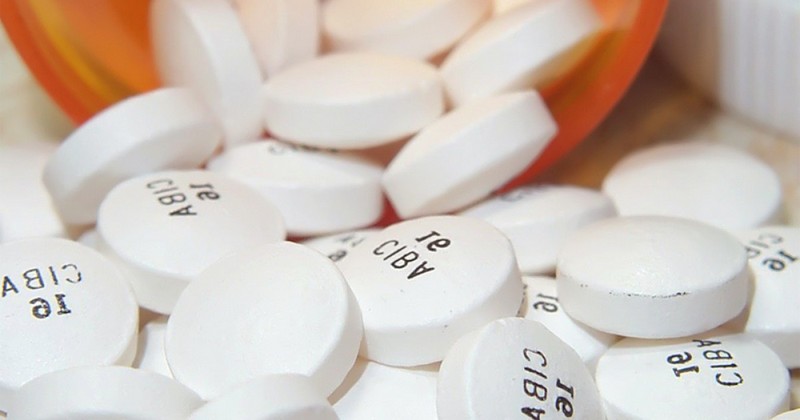Methylphenidate: what it is, what it is used for and side effects

This psychostimulant is known to be used in the treatment of adhd under names such as "Ritalin".
In recent decades, the diagnosis of attention deficit hyperactivity disorder, which is related to deficits in executive functions, has become very popular. The drug of first choice to treat ADHD is methylphenidate..
In this article we will describe what methylphenidate is, what are its applications in ADHD and narcolepsy, what side effects it most commonly causes and in which cases this drug is contraindicated.
What is methylphenidate?
Methylphenidate is a stimulant drug. which has effects similar to those of amphetamines and is used primarily to treat the symptoms of attention deficit hyperactivity disorder (ADHD) as well as narcolepsy.
Methylphenidate, on the other hand, is marketed under various names; some of the best known are Ritalin, Concerta, Aradix and Rubifen..
Although it began to be used in the 1960s, its use became popular in the 1990s as a result of the increase in the number of ADHD diagnoses. It is now widely used for the treatment of this disorder.
The mechanism of action of methylphenidate consists of the inhibition of dopamine and noradrenaline reuptake.It blocks the transporters of these catecholamines, increasing their concentration in the synaptic space and therefore their neurotransmitter effects. It also slightly potentiates the function of serotonin.
The effects of methylphenidate are especially intense in the prefrontal cortex. The increased activity in this brain region promotes executive functions such as reasoning, planning and behavioral inhibition. reasoning, planning and behavioral inhibition.. This stimulation of the central nervous system is also manifested in improved alertness and attention.
Methylphenidate and treatment of ADHD
Attention deficit hyperactivity disorder (ADHD) is a childhood-onset neurological disorder related to executive function problems. Although there is controversy about the existence of this disorder, most clinicians believe that it has a clear biological basis, although there is a certain tendency to overdiagnosis.
ADHD has been associated with dysfunctions in the transmission of dopamine and noradrenaline in the central nervous system; agonist effects of methylphenidate compensate for these functional deficits. deficits. Treatment with methylphenidate is successful in approximately 70% of cases, but can have significant side effects.
The recommended treatment for ADHD is a combination of methylphenidate and cognitive-behavioral therapy focused on training coping strategies for both the child and his or her caregivers.
Use in cases of narcolepsy
Narcolepsy is a neurological disorder which causes disturbances in sleep-wake cycles.. Prominent symptoms of narcolepsy include daytime hypersomnolence, episodes of cataplexy and intrusions of REM sleep into wakefulness, especially hypnagogic hallucinations.
For this disorder, methylphenidate and other psychostimulants, such as other psychostimulants, such as modafinil and some antidepressants, are used to increase alertness. and some antidepressants, are used to increase alertness; these drugs reduce drowsiness and improve performance.
Side and adverse effects.
The most common side effects of methylphenidate are anxiety and a feeling of nervousness, nausea, dry mouth, and loss of appetite, leading to loss of appetite, which in turn leads to weight loss.In the long term, these effects sometimes lead to a slightly lower physical development, which is maintained as long as the drug is taken.
Gastrointestinal symptoms that methylphenidate can produce include abdominal pain, heartburn and vomiting. Cardiovascular symptoms, particularly tachycardia and mild palpitations, alterations in blood pressure and Raynaud's phenomenon, also occur occasionally.
Other common side effects are emotional instability, irritability, hyperhidrosis or excessive sweating, dry eyes, blurred vision and bruxism, which consists of continuous clenching of the jaws or teeth.
Adverse reactions to methylphenidate include symptoms such as akathisia include symptoms such as akathisia (intense agitation and malaise), dyskinesia (involuntary muscle movements), seizures, chest pain or breathing difficulties. The appearance of these and other serious symptoms should be understood as a sign that the medication should be reviewed.
Warnings and contraindications
Persons with cardiovascular disorders, such as hypertension or structural cardiac abnormalitiesshould be especially cautious when taking methylphenidate. It is also contraindicated if certain psychological disorders are present, such as psychosis, mood disorders, anxiety problems, anorexia nervosa and substance addictions.
Drinking alcohol increases the likelihood of the side effects described above and aggravates them when they are already present. Methylphenidate is also contraindicated in people with glaucoma, pheochromocytoma, hyperthyroidism or a history of depression.
Methylphenidate is not recommended during pregnancy because the possible consequences have not been sufficiently studied; some preliminary research suggests that it it can induce respiratory and circulatory problems in the fetus..
(Updated at Apr 14 / 2024)